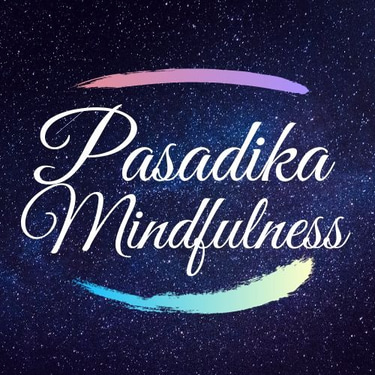What is Meditation?
Have you ever wondered
8/18/20252 min read


Meditation is a word we hear often, but its real meaning is often misunderstood. Some people imagine it as sitting silently and forcing the mind to stop thinking. Others think it’s something mystical or difficult. In truth, meditation is much simpler: it is the practice of training the mind to be calm, aware, and kind.
Just as exercise strengthens the body, meditation strengthens the mind and heart.
Clearing Misconceptions
A common myth is that meditation means “not thinking.” But if you try to push thoughts away, you’ll only feel more restless. Meditation is not about fighting thoughts — it’s about observing them.
Think of sitting by a river. Your thoughts are like leaves floating past. You don’t chase them or stop them; you simply watch them flow. That is meditation.
The Role of Mindfulness
At the core of meditation lies mindfulness — the ability to stay present. Our minds often wander to past regrets or future worries. Mindfulness brings us back to the here and now, helping us reduce stress and find balance.
Meditation is a way of cultivating mindfulness. With regular practice, it helps us respond to life with calmness, clarity, and kindness.
Different Kinds of Meditation
There are many meditation practices around the world:
Breath awareness — focusing on the natural rhythm of your breath.
Body scan — relaxing and observing each part of your body.
Kindness meditation — developing compassion for yourself and others.
Visualization or mantra practices.
In India, traditions like Raj Yoga and Kundalini Yoga combine meditation with physical and spiritual exercises. In the West, meditation is often used in healthcare for stress reduction and emotional healing.
The good news is: there’s no one “right” way. You can choose a method that feels natural to you.
How Meditation Feels
Meditation is not about escaping reality or going into a trance. Instead, it helps you:
Feel calm and relaxed
Become aware of your thoughts and emotions
Respond with patience instead of reacting blindly
Develop empathy and kindness
Even a few minutes of practice can make a difference in how you handle stress and daily challenges.
A Simple Way to Begin
You don’t need special equipment or a complicated routine. Here’s a basic method:
Find a quiet spot.
Sit comfortably or lie down.
Close your eyes gently and focus on your breath.
When thoughts arise, don’t fight them. Just notice them and return to your breath.
Start with 5 minutes a day and increase gradually.
Why Regular Practice Matters
Like learning music or a sport, meditation takes practice. Over time, you’ll notice:
Less stress and anxiety
Better focus
Improved emotional balance
More kindness and self-awareness
Meditation doesn’t remove life’s problems, but it changes how we respond to them.
Closing Thought
So, what is meditation? Simply put: it’s a way of being present and kind, with yourself and the world. Begin small, stay consistent, and let the calmness of meditation become part of your daily life.
✨ Takeaway: Meditation is not about stopping thoughts. It’s about observing them with awareness and kindness. Start with a few minutes each day and watch your life gradually transform.
